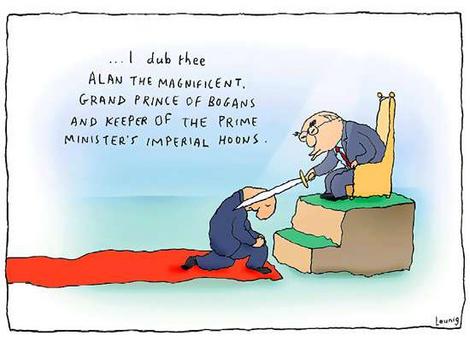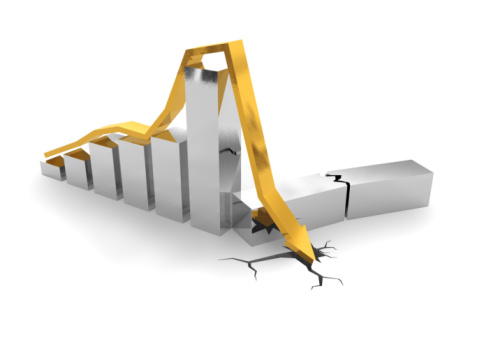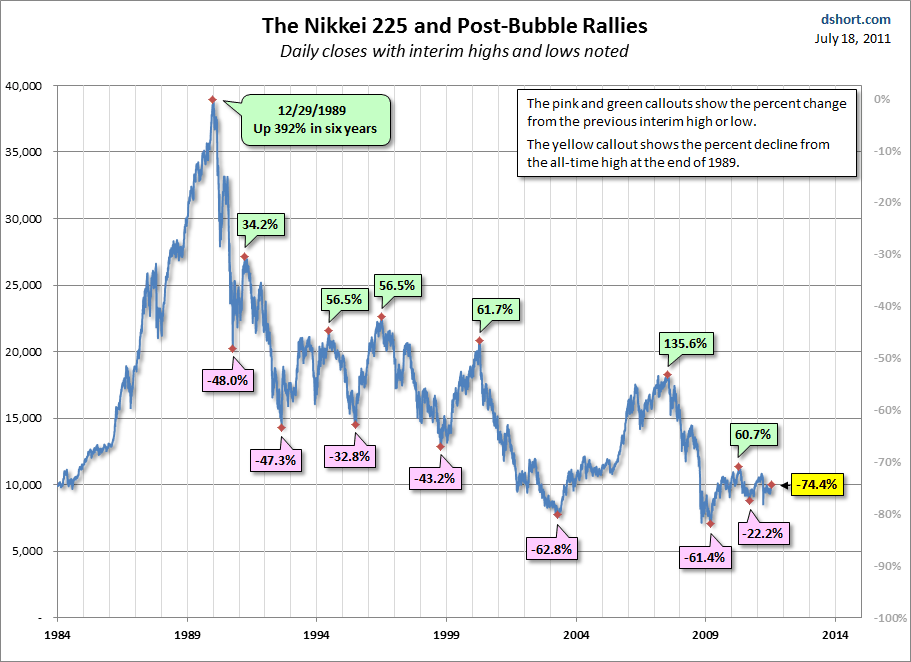Acceleration is the first derivative of velocity (speed). If speed is constant then acceleration is zero (no change to speed), if speed is decreasing acceleration is negative (deceleration) if speed is increasing acceleration is positive. Gravity's rate of acceleration is defined as 9.8 metres per second per second.
On Mayday I wrote,
What a crash [that brings down the banking sector and spikes unemployment from 4.5% to 13%] looks like.
Irish House Prices peaked in the period October 2006 to July 2007.
Changes in Irish House Prices QoQ.
Q4 2006 Flat (No Change)
Q1 2007 +0.7%
Q2 2007 +0.2%
Q3 2007 -1.0%
Q4 2007 Flat (No Change)
Q1 2008 -3.3%
Q2 2008 -2.9%
Q3 2008 -3.2%
Q4 2008 -6.0% (The largest percentage drop)
Q1 2009 -5.4%
Q2 2009 -4.9%
Q3 2009 -4.2%
Q4 2009 -5.0%
Q1 2010 -3.5%
Q2 2010 -4.0%
Q3 2010 -2.8%
Q4 2010 -5.8%
Q1 2011 -2.9%
----------------------
Changes in Irish House Prices YoY
Year 1 -1.5%
Year 2 -11.5%
Year 3 -18.5%
Year 4 -14.5%
Last 6 Months -8.4%
Total Losses -43.2% over 4 years and 5 months.
Quarter on Quarter and Month on Month those falls look insignificant with -6% being the biggest QoQ drop. But, string them together and you have a train wreck.
Where are we now?
From a QLD RE Agent:
Queensland Property Market Free Fall.
If you think property markets are much less volatile than share markets, think again! A recent sale in Brisbane is proof that the property market in Queensland is falling at a rate of nearly three per cent per month. The property at 20 Lilley Street, Hendra sold for $955,000 on the 19th February, 2011 and again sold on the 6th of August for $800,000. That’s 2.7% per month, or 16.2% in just 6 months. And it was not a flood affected property!
Most sellers throughout South-East Queensland and the Gold Coast remain in denial of the current market conditions and live in false hope of achieving their dream price, but the reality is the property market is in free fall. In some areas there is now more than ten years supply of properties for sale. Sadly, it takes many sellers several years to gain an understanding of the market and by then, their property is worth far less. As real estate agents, we see very good offers being rejected or dismissed as ‘low offers’ almost every day. A few weeks or months later we are asked to get the same offer again and by then it’s too late.
Hmmm
denial not meeting reality; 10 years of supply (don't THEY know there is a 'shortage'); Thats ugly.
Maybe its isolated?
House prices sliding in Melbourne's suburbs
MELBOURNE'S median house price has lost more than $800 a week since the property market peaked late last year.
House prices have fallen 4.4 per cent from a December high and apartment prices are down 3.4 per cent after hitting their price ceiling in November, according to figures from property research firm RP Data.
Melbourne's median house price hit a record $521,000 in December and has lost about $23,000, or $818 a week ever since.
$800 a week up in smoke? Thats on ONE property what if you are an highly leveraged investor with say 2, 3, 4 or more?
Maybe its an East Coast thing.
Capital city markets feel the frosty winter chill
Perth recorded the largest fall in house prices during the quarter, down by 2.7 per cent, followed by Brisbane, down 2.1 per cent, and Darwin and Adelaide, which both fell by 1.9 per cent.
Maybe not. Maybe its Ireland early 2008.
How does minus 2.4% a quarter (split the diff between Perth and Brisbane) look down the track if we do that quarter on quarter?
Over 5 years,
-38.5% raw or
-67% adjusted for inflation. That second number could be either here or there if we follow the Irish, Spanish and US pattern and have spiralling unemployment and low inflation, disinflation or deflation.
A few days ago I wrote
Down, Down, Deeper and Down.
In fact, I almost swerved into the D'Entrecasteaux Channel when cruising down Bruny Island, the radio station bimbo in a jubilant tone blurts out (as news) that in 'excellent' figures 'just out' - 45,000 of the states workers were employed in Real Estate and Construction and a third of the governments tax revenue comes from Real Estate transactions (ie Stamp Duty).
Is that a problem? Well, in census 2006 there were 216,000 Tasmanians in the labour force, its 5 year old census data but 45,000 in the RE industry is a number around 20% of the workforce. As for the govts gravy train via stamp duty slowing to a few brown spots on the table cloth, the govt of Tasmania is about to dump 1700 public servants and the shit hasn't really hit the fan...yet. With that level of the workforce in the Ponzi (Ireland and Spain like ratios) I see some dark times ahead not only for the apple isle but the whole nation...
Then a few days later I read from NSW,
Revenue fall creates state budget crisis.
THE NSW financial position has deteriorated by hundreds of millions of dollars since April, the Treasurer, Mike Baird, has warned, as consumer spending tightens during uncertain economic conditions globally.
''The budget is under increasing pressure, as all government budgets are with the drop in revenues,'' Mr Baird told the Herald.
''Recent global events will hurt our budget, just as they are hurting every budget. And it's not a small amount. It's not in the tens of millions; we're talking hundreds of millions of dollars.''
It is understood the forecast drop in revenue is particularly sharp for 2011-12 and stamp duties have been hardest hit.
Australian Property is a Ponzi scheme, it needs a constant flow of 'greater fools' to keep it alive with the govt taking a cut ala a dealer on the Poker Table. No churn and no ponzi means no revenue.
In April I wrote
History Never Repeats. Read it as its coming to fruition.
The authors present eight centuries of financial folly, demonstrating the common theme that excessive debt accumulation regardless of the source — government, business or consumer — poses greater systemic risks than it seems at the time of the boom. (MoneyWatch recently interviewed Reinhart for her views on the current state of the economy.)
- Infusions of cash make a government look like it’s providing greater growth than is actually being provided. (Check - done)
- Private-sector borrowing binges inflate housing and stock prices beyond sustainable levels and make banks seem more stable and profitable than they really are. (Check - done)
- Large-scale buildups of short-term debt make an economy vulnerable to crisis of confidence. (Check - done)
They demonstrate that financial crises are protracted affairs that share three characteristics:
The bottom line is that the aftermath of crises has a deep and lasting effect on asset prices, output and employment. Unemployment increases and housing price declines have extended for five and six years, respectively. The authors also note that V-shaped recoveries in equity prices are far more common than V-shaped recoveries in real housing prices or unemployment. (2009 is certainly not an exception.)
Historically:
- Declines in real housing prices average 35 percent and stretch over six years.
- Unemployment rises an average of 7 percent over cycles lasting more than four years on average.
- Output falls more than 9 percent over two-year periods, and it has taken about four-and-a-half years for output to fully recover.
- Government debt surges an average of 86 percent in real terms. The main cause is not spending but a decline in revenues
Its 2005 and American but if the hat fits...

















































